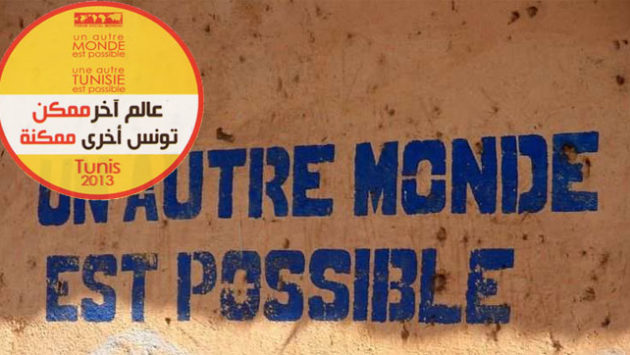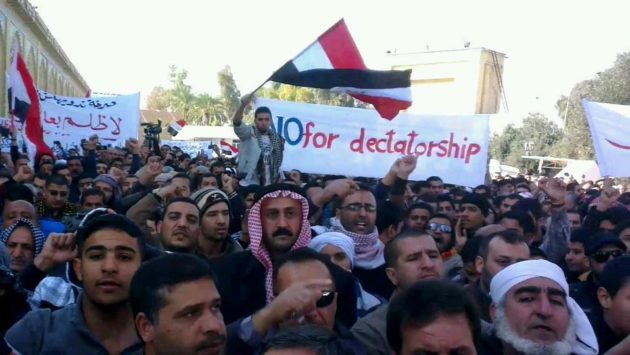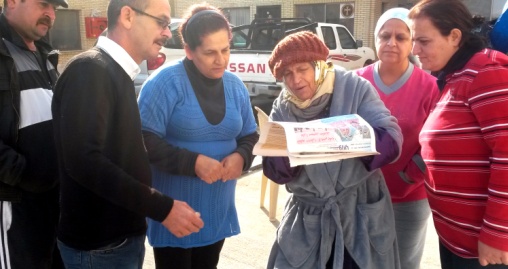Iraqi government calls on civil society to fight COVID-19
BAGHDAD — Despite the Iraqi government’s intensive efforts to fight the novel coronavirus, it seems unable to accommodate the difficult circumstances due to its limited resources, not to mention the political crisis that has been plaguing it since protests erupted in October 2019. The Iraqi government is thus calling on civil society and charities to provide aid with their resources.
On March 26, Iraqi President Barham Salih announced that despite the government’s efforts to overcome this crisis with minimal damage and losses, “the challenge requires mobilizing all popular and official resources to confront this pandemic that threatens the life of every citizen. So we call on all businessmen, civil society institutions, federations, unions, tribes and every citizen” to support the work of the anti-COVID-19 team to succeed in fighting the virus.
On March 28, Salih launched a national initiative to mobilize all aid and community cooperation in combating COVID-19, which is close to becoming a comprehensive pandemic in Iraq. Bank account numbers and phone numbers were given to the public to receive all types of societal assistance.
In the same context, on March 29, Prime Minister-designate Adnan al-Zurfi announced a government program to fight COVID-19 and noted he will utilize all resources within the government and the private sector and enable all community initiatives to support the efforts to combat the pandemic.
Official statements indicate the situation in Iraq is heading toward a comprehensive health crisis that the government is unable to cope with; thus, has resorted to drawing from civil society institutions, religious organizations and charities so they can get into the driver’s seat in assisting the government in this fight.
The increasing number of confirmed cases in Iraq, which reached 630 cases, including 46 deaths, on March 31, indicates the virus could spread even further during the coming days if the strict measures taken to fight it do not succeed.
Consequently, the Office of the High Commissioner for Human Rights called on the Husseinian processions and all community activities to provide financial and health support to the infected people and their families, warning of the spread of COVID-19 in the absence of community mobilization in this regard.
In the same vein, Grand Ayatollah Ali al-Sistani called on the youth and the Husseinian processions to support poor families affected by the current circumstances and to mobilize all religious centers’ resources to contribute to combating COVID-19.
Following Sistani’s recommendations, Al-Abbas holy shrine in Karbala took action, starting with building a hall with 52 single rooms for the treatment of people in Karbala infected with the coronavirus. Al-Abbas Mosque also launched a solidarity campaign to support the vulnerable and affected families, especially since a curfew has been set to limit citizen movement.
Al-Abbas holy shrine established the relief and support division with branches in all governorates to coordinate with government agencies in providing medical and financial support to the infected people and their families.
Meanwhile, hundreds of religious processions provide various forms of support to the government to fight the coronavirus in Iraq.
Head of the Imam Al-Khoei Religious Procession in Baghdad Mulla Hussein Al-Awsi told Al-Monitor, “We have formed teams of commission members to disinfect public spaces such as shops, public markets, sports arenas and some of the residential neighborhoods that are difficult for the government to reach.”
Awsi added, “The procession established a committee to coordinate with specialized personnel and provide medical assistance; it also formed a team to spread awareness among citizens and online and share the instructions issued by the relevant authorities. The procession is also preparing over 700 food baskets per day to help the needy families and those with limited incomes.”
Many traders and business owners have helped the government as well. Mohammed Abbas al-Najafi, a member of the Najaf hotel association, told Al-Monitor the association, an unofficial gathering of owners and managers of tourist hotels in the governorate, has donated 10 hotels to the governor to be allocated to visitors who were stuck in Najaf after the curfew was imposed in the governorate and all borders were closed, as well as for the purpose of using these hotels to quarantine if necessary.
In addition, a number of traders in Najaf have donated 350 million Iraqi dinars (the equivalent of $293,994) to provide medical supplies to governorate hospitals.
In the context of another initiative, member of the national generator association in Baghdad Ali al-Ghazali told Al-Monitor a number of generator owners in Baghdad have voluntarily provided free electricity to poor and needy families in their area as an expression of solidarity amid the tough circumstance in the country, and the association is working to encourage the rest to join the initiative.
The initiative came in response to the “Fraternity Is Calling” campaign, launched by civil activist Hisham al-Zahabi, who is known for adopting a large number of Baghdad orphans in an orphanage he manages.
Youth associations in the protest squares in Baghdad and several areas of southern Iraq are making various efforts to fight the coronavirus. In Al-Tahrir Square in Baghdad, young people have been carrying out an awareness campaign since mid-March and disinfecting the streets, while a special medical unit set up in the middle of the square by the Iraqi Students Union has been examining people.
Meanwhile, protesters in Karbala and Najaf have been working on making masks and giving them out for free on an ongoing basis. Other protesters at the University of Kufa launched a comprehensive disinfecting campaign in the city, urging people to stay home and carrying out awareness campaigns to reduce the spread of the virus.
Humanitarian assistance has not only been provided by the government, institutions or associations — ordinary citizens have been making tremendous efforts individually. Most prominently, dozens of mobile bakeries in vehicles traveled the streets of Baghdad to distribute bread to citizens so they would not have to leave their homes. In addition, Iraqi activist Nadia Mohammed in the city of Kirkuk made hundreds of surgical masks and distributed them for free in order to help the poor who cannot afford the expensive surgical masks.
These all indicate that Iraqi civil society is working hard to support the government in fighting the further spread of the coronavirus in the country.




